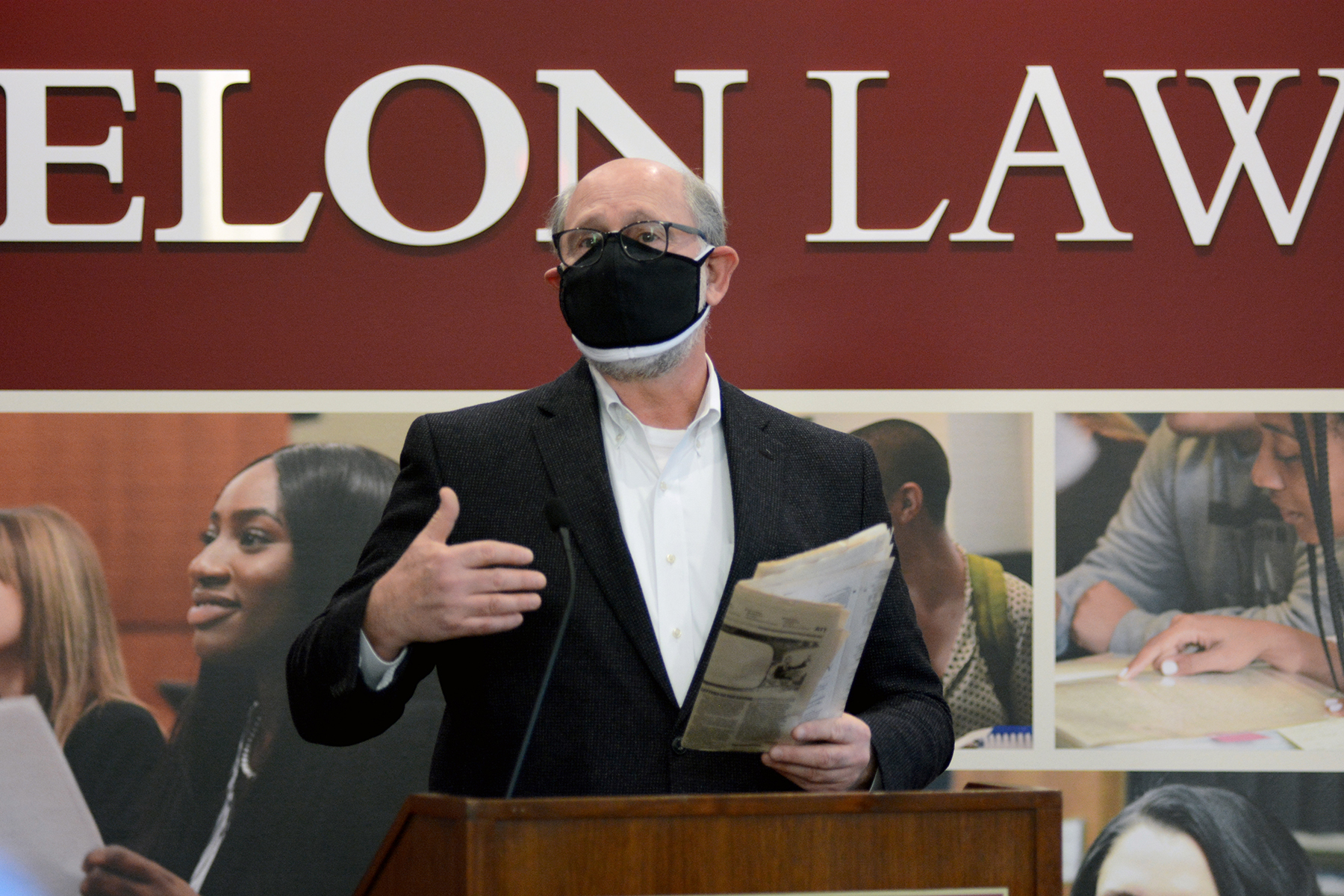The former dean of Elon University School of Law concluded his leadership role on December 31 and will return to the faculty after a yearlong sabbatical.
When Luke Bierman assumed leadership of Elon Law in 2014, law schools across the United States were in trouble: interest in the profession was fading as enrollments fell to levels not reported in decades.
He quickly got to work with a faculty committed to innovation and experiential learning.

The result? Elon Law’s faculty adopted a 2.5-year, logically sequenced curriculum that addressed what Bierman often describes as the “dirty little secrets” of legal education – it’s too long, too expensive, and too disconnected from the profession.
Applications have since jumped more than 50 percent, with Elon Law reaching full enrollment for 2021-2022 and the median LSAT score of the incoming class leaping five points in five years. Average student debt at graduation has been cut by nearly a third. A unique Residency-in-Practice Program, introduced as part of the new curriculum, places second-year Elon Law students with an attorney or judge to work full-time for academic credit.
Bar exam pass rates likewise have surged with post-graduate career placement rates hovering around 90 percent. Elon Law has meanwhile during Bierman’s tenure hired 15 continuing-track professors, 14 of whom identify as members of underrepresented communities.

These accomplishments and more were cited by top Elon University leaders on January 6, 2022, in a midday celebration in the Cemala Foundation Commons attended by dozens of Elon Law students, faculty, and staff who applauded Bierman’s legacy just days after he officially concluded his deanship.
“On behalf of President Book and all the faculty, staff and students at Elon, I want to congratulate and thank Dean Bierman for his incredible service to the law school, the Greensboro area, and Elon in general,” Provost Aswani Volety said in his remarks to the community. “Looking back at what the law school has accomplished under Luke’s leadership, these will be some really big shoes to fill.”
A national search is now in progress as Elon University leaders search for the law school’s fourth dean. Interim Dean Alan Woodlief assumed leadership of the law school effective January 1. Bierman expects to write about legal education and other topics during a yearlong sabbatical before returning to the faculty.

Woodlief noted in his own remarks that not many institutions have twice been named to PreLaw Magazine’s list of “Most Innovative Law Schools,” once directly because of the 2.5-year curriculum. Elon Law also has made the top 10 of PreLaw Magazine’s annual rankings for practical training driven in large measure by the Residency-in-Practice Program.
Bierman thanked his colleagues and credited students for Elon Law’s many successes.
“What makes me proudest and should make all of us quite proud is that we did what we said we were going to do,” he said. “We said we were going to attack and challenge and think of how to make law school more interesting, how to make it more affordable, how to make it less long, and how to connect it to the profession.
“For students, we have accomplished that, though it is an ongoing and continuing effort. I ask that you continue to do exactly what you’re doing, which is working hard. Think about what the future holds for the profession that you’ve chosen. Think about how you can make it better. Think about the critiques that will help us know what to do in the next phases of development.”



